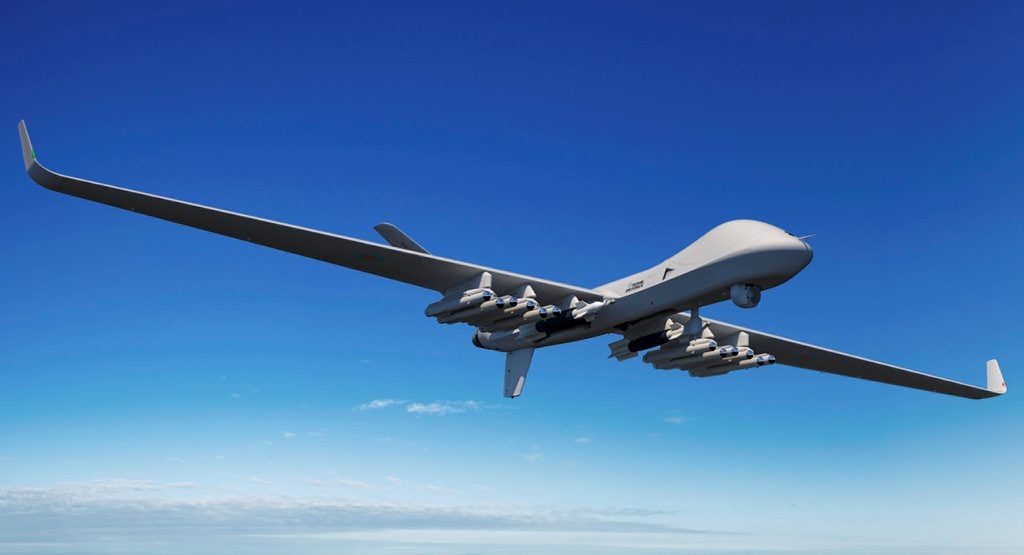
The UK and Belgium have agreed a Bilateral Statement of Intent (Sol) to work in collaboration on the Protector Remotely Piloted Aircraft System (RPAS), which both are soon to procure.
The GA-ASI (General Atomics Aeronautical Systems) built protector has been described by UK Defence Secretary Ben Wallace as a “game-changing” aircraft. It is the world’s first RPAS to meet both NATO and UK Safety Certification standards required for piloted aircraft in unsegregated airspace
This means that the Protector can fly in civilian airspace, unlike most Uncrewed Aerial Systems (UAS).
Under the SoI, both nations will collaborate on training, maintenance, logistic support, interoperability and capability enhancement.
This agreement comes a month after Wallace announced that the Ministry of Defence (MOD) had signed a £65m contract for its first three Protector RPAS and associated ground control stations (GCS), with the potential for thirteen further aircraft in the future.
Belgium has agreed to purchase four MQ-9Bs and two GCS for its own defence needs. Belgium has agreed to a contract of almost $189m.

US Tariffs are shifting - will you react or anticipate?
Don’t let policy changes catch you off guard. Stay proactive with real-time data and expert analysis.
By GlobalDataRoyal Air Force (RAF) Chief of the Air Staff Air Chief Marshal Mike Wigston announced: “This Statement of Intent between the UK and Belgium reflects our shared ambition for Protector, the MQ-9B Remotely Piloted Aircraft System, working in partnership to tackle threats to our national and collective security.”
Wigston commended the Protector’s “cutting-edge sensors and systems” saying they would “protect national, NATO and European security”. The aircraft features a Detect and Avoid system (DAA) and a flight endurance of more than 48 hours that allows the aircraft to provide persistent Intelligence, Surveillance, and Reconnaissance (ISR).
Commander of the Belgian Air Component Major General Frederik Vansina said: “As the second Air Force acquiring this system, we are proud to join the United Kingdom in setting the first milestones towards interoperability between both our systems.
“Both our nations see great opportunity in developing strategic partnership and in doing so we will tackle shared challenges with greater strength on top of streamlining our Forces’ interoperability in employing this state-of-the-art asset.
“As other NATO Air Forces join the United Kingdom and Belgium in acquiring this cutting-edge capability, which we will seamlessly integrate into densely navigated airspaces around the globe, I’m proud to announce today’s signing of our bi-national Statement of Intent.”
Vansina described this step as an “important step toward the foundation of a reliable partnership between our Air Forces,” which will further develop this new system.
By Emmaleigh Eaves



